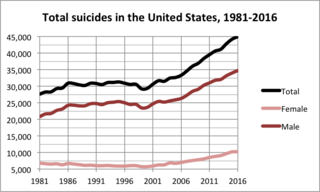
Emory University is a private research university in Atlanta, Georgia, United States. The university was founded as Emory College in 1836 in Oxford, Georgia, by the Methodist Episcopal Church and was named in honor of Methodist bishop John Emory.

The University of Florida is a public land-grant, sea-grant, and space-grant research university in Gainesville, Florida. It is a senior member of the State University System of Florida and traces its origins to 1853 and has operated continuously on its Gainesville campus since September 1906.

The surgeon general of the United States is the operational head of the U.S. Public Health Service Commissioned Corps (PHSCC) and thus the leading spokesperson on matters of public health in the federal government of the United States. The Surgeon General's office and staff are known as the Office of the Surgeon General (OSG) which is housed within the Office of the Assistant Secretary for Health.

The University of Massachusetts Lowell is a public research university in Lowell, Massachusetts with a satellite campus in Haverhill, Massachusetts. The university is part of the University of Massachusetts system and has been regionally accredited by the New England Association of Schools and Colleges (NEASC) since 1975. With 1,110 faculty members and over 18,000 students, it is the largest university in the Merrimack Valley and the second-largest public institution in the state.

David Lee Hobson is an American politician who served as a Republican congressman from the seventh congressional district of Ohio.

James Ostermann Mason was an American medical doctor and public health administrator. He was the United States Assistant Secretary for Health (ASH) from 1989 to 1993 and the Acting Surgeon General of the United States from 1989 to 1990. As the ASH he was also a former four-star admiral in the United States Public Health Service Commissioned Corps. He was also a director of the Centers for Disease Control and Prevention and a general authority of The Church of Jesus Christ of Latter-day Saints.

Widener University is a private university in Chester, Pennsylvania. The university has three other campuses: two in Pennsylvania and one in Wilmington, Delaware.

Uniformed Services University of the Health Sciences (USU) is a health science university of the U.S. federal government. The primary mission of the school is to prepare graduates for service to the U.S. at home and abroad in the medical corps as medical professionals, nurses, and physicians.

George Washington Atherton was president of the Pennsylvania State University from 1882 until his death in 1906. He earned a degree from Yale in 1863 and taught at universities such as the University of Illinois and Rutgers before accepting the position of president at Penn State. There, he was faced with the challenge of transforming the school from an unrecognized agricultural college into a respected land-grant college. During his tenure, the school's graduating class increased from seven in 1882 to 86 in 1906. He is buried on the campus of Penn State, near Old Main, on Pollock Road which cuts directly through the campus.

The University of South Florida (USF) is a public research university in Tampa, Florida. It is a member institution of the State University System of Florida. Founded in 1956, USF is the fourth-largest public university in the state of Florida, with an enrollment of 50,755 as of the 2018–2019 academic year. The USF system has three institutions: USF Tampa, USF St. Petersburg and USF Sarasota-Manatee. Each institution is separately accredited by the Commission on Colleges of the Southern Association of Colleges and Schools. The university is home to 14 colleges, offering more than 80 undergraduate majors and more than 130 graduate, specialist, and doctoral-level degree programs.
American Public University System (APUS) is a private, for-profit, online learning institution that is composed of American Military University (AMU) and American Public University (APU). APUS is wholly owned by American Public Education, Inc., a publicly traded private-sector corporation. APUS maintains corporate and academic offices in Charles Town, West Virginia and administrative offices in Manassas, Virginia. APUS offers associates, bachelors, masters, and doctoral degrees, in addition to dual degrees, certificate programs and learning tracks.
The American Association of Colleges of Osteopathic Medicine (AACOM) is a non-profit organization that supports the 36 accredited colleges of osteopathic medicine (COMs) in the United States. These colleges are accredited to deliver instruction at 57 teaching locations in 33 states. In the current academic year, these colleges are educating more than 30,000 future physicians—25 percent of all U.S. medical students. Seven of the colleges are public and 29 are private institutions.

The University of California, Berkeley School of Public Health, commonly called the UC Berkeley School of Public Health, is one of 14 schools and colleges at the University of California, Berkeley. The School of Public Health is consistently rated alongside the best in the nation, with recent rankings placing its doctoral programs in Epidemiology, Environmental Health Sciences, and Health Policy among the top in their fields, and its Master of Public Health program 8th among those in the United States. Established in 1943, it was the first school of public health west of the Mississippi River. The school is currently accredited by the Council on Education for Public Health.

Political ideologies in the United States refers to the various ideologies and ideological demographics in the United States. Citizens in the United States generally classify themselves as adherent to positions along the political spectrum as either liberal, progressive, moderate, or conservative. Modern American liberalism aims at the preservation and extension of human, social and civil rights as well as the government guaranteed provision of positive rights. It combines social progressivism and to some extent ordoliberalism and is highly similar to European social liberalism. American conservatism commonly refers to a combination of economic liberalism and libertarianism and social conservatism. It aims at protecting the concepts of small government and individual liberty while promoting traditional values on some social issues.
Disaster medicine is the area of medical specialization serving the dual areas of providing health care to disaster survivors and providing medically related disaster preparation, disaster planning, disaster response and disaster recovery leadership throughout the disaster life cycle. Disaster medicine specialists provide insight, guidance and expertise on the principles and practice of medicine both in the disaster impact area and healthcare evacuation receiving facilities to emergency management professionals, hospitals, healthcare facilities, communities and governments. The disaster medicine specialist is the liaison between and partner to the medical contingency planner, the emergency management professional, the incident command system, government and policy makers.
International health, also called geographic medicine, international medicine, or global health, is a field of health care, usually with a public health emphasis, dealing with health across regional or national boundaries. One subset of international medicine, travel medicine, prepares travelers with immunizations, prophylactic medications, preventive techniques such as bednets and residual pesticides, in-transit care, and post-travel care for exotic illnesses. International health, however, more often refers to health personnel or organizations from one area or nation providing direct health care, or health sector development, in another area or nation. It is this sense of the term that is explained here. More recently, public health experts have become interested in global processes that impact on human health. Globalization and health, for example, illustrates the complex and changing sociological environment within which the determinants of health and disease express themselves.

Nursing is a profession within the health care sector focused on the care of individuals, families, and communities so they may attain, maintain, or recover optimal health and quality of life. Nurses may be differentiated from other health care providers by their approach to patient care, training, and scope of practice. Nurses practice in many specialties with differing levels of prescription authority. Many nurses provide care within the ordering scope of physicians, and this traditional role has shaped the public image of nurses as care providers. However, nurse practitioners are permitted by most jurisdictions to practice independently in a variety of settings. Since the postwar period, nurse education has undergone a process of diversification towards advanced and specialized credentials, and many of the traditional regulations and provider roles are changing.

Suicide is a major national public health issue in the United States. The country has one of the highest suicide rates among wealthy nations. In 2018, there were 48,344 recorded suicides, up from 42,773 in 2014, according to the CDC's National Center for Health Statistics (NCHS). On average, adjusted for age, the annual U.S. suicide rate increased 24% between 1999 and 2014, from 10.5 to 13.0 suicides per 100,000 people, the highest rate recorded in 28 years. Due to the stigma surrounding suicide, it is suspected that suicide generally is underreported. In April 2016, the CDC released data showing that the suicide rate in the United States had hit a 30-year high, and later in June 2018, released further data showing that the rate has continued to increase and has increased in every U.S. state except Nevada since 1999. Surging death rates from suicide, drug overdoses and alcoholism, what researchers refer to as "deaths of despair", are largely responsible for a consecutive three year decline of life expectancy in the U.S. This constitutes the first three-year drop in life expectancy in the U.S. since the years 1915–1918.

The University of Toledo is a public research university in Toledo, Ohio. The university also operates a 450-acre (180 ha) Health Science campus, which includes the University of Toledo Medical Center, in the West Toledo neighborhood of Toledo; a 160-acre (65 ha) satellite campus in the Scott Park neighborhood of Toledo; the Center for the Visual Arts is located in downtown Toledo at the Toledo Museum of Art; and a research and education facility, known as the Lake Erie Center, is at the Maumee Bay State Park.

United States military veteran suicide is an ongoing phenomenon regarding a reportedly high rate of suicide among U.S. military veterans, in comparison to the general public. According to the most recent report published by the United States Department of Veterans Affairs (VA) in 2016, which analyzed 55 million veterans' records from 1979 to 2014, the current analysis indicates that an average of 20 veterans die from suicide per day.















